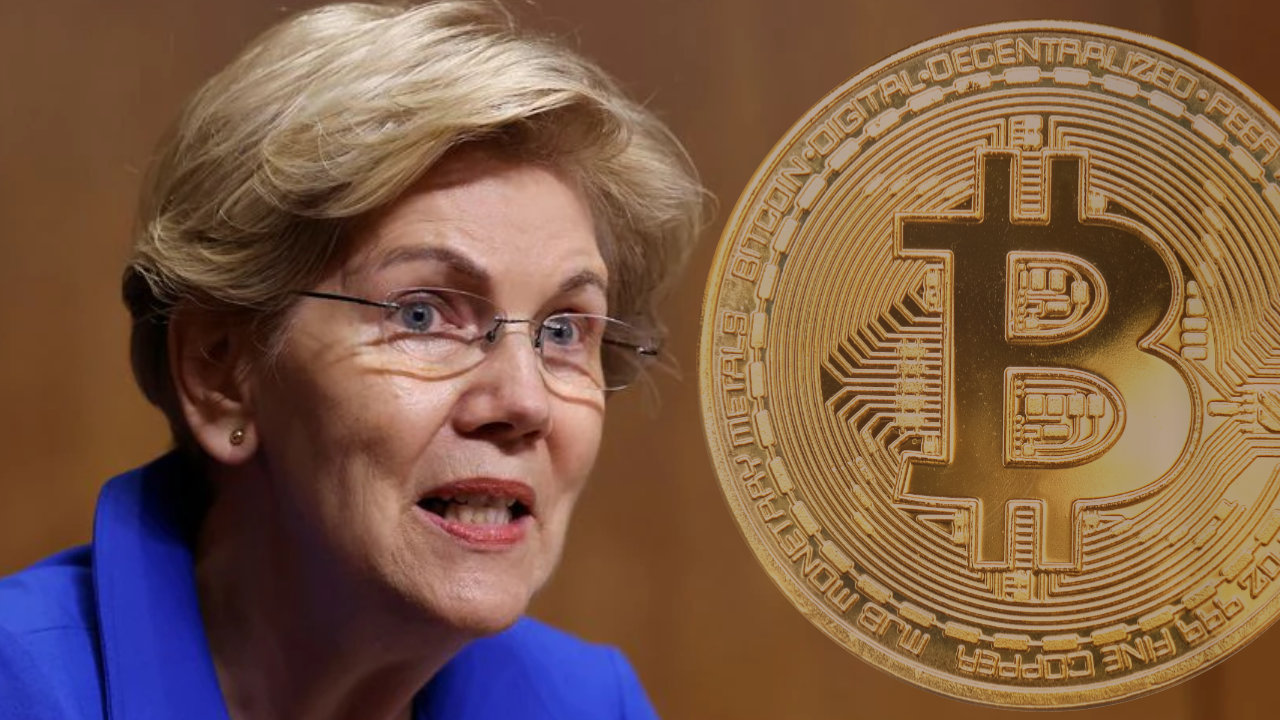US Senator on Crypto: We Need Real Solutions to Make the Financial System Work for Everyone, Not Just the Wealthy

U.S. Senator Elizabeth Warren has argued that cryptocurrency is not a path to financial inclusion like crypto advocates claim. “Bitcoin ownership is even more concentrated within the top 1% than dollars,” she said, emphasizing the need for “real solutions to make the financial system work for everyone, not just the wealthy.”
Senator Elizabeth Warren on Crypto and Bitcoin
U.S. Senator Elizabeth Warren (D-Mass.) commented about cryptocurrency, bitcoin, and financial inclusion Tuesday. She tweeted:
The crypto industry claims that crypto is the path to financial inclusion, but bitcoin ownership is even more concentrated within the top 1% than dollars. We need real solutions to make the financial system work for everyone, not just the wealthy.
Her comment was in response to an article in the Wall Street Journal claiming that the top 1% of bitcoin holders “control a greater share of the cryptocurrency than the most affluent American households control in dollars.” Citing a study by the National Bureau of Economic Research, the author wrote that “the top 10,000 bitcoin accounts hold 5 million bitcoins, an equivalent of approximately $232 billion.”
Many Twitter users replied to Senator Warren’s tweet. One user told the Massachusetts senator: “This is not true. The fixed bitcoin supply means ownership gets less concentrated over time in congruence with adoption, usage and creation of value. There is no other alternative to fixing the money printing problem that results in an invisible tax on the average citizen.”
Another user tweeted to the senator: “Your argument is flawed. So I am left to assume you don’t understand BTC is not ‘all crypto’ — it’s BTC. You are only recognizing BTC as ‘crypto’ while ignoring an entire budding ‘crypto industry’ based on the transfer of value for fractions of a penny.”
Moreover, some people reminded Senator Warren that crypto is decentralized and is for everyone, not just the rich. Some questioned the claims made in the Wall Street Journal article. Several people called the senator from Massachusetts “ignorant” and “manipulative,” emphasizing the need for education.
The senator recently called on regulators to “clamp down” on stablecoins and decentralized finance (defi) platforms “before it is too late.” She said, “Defi is the most dangerous part of the crypto world.” In July, she urged U.S. Treasury Secretary Janet Yellen to urgently adopt a policy to mitigate crypto risks.
In September, she pressed the Securities and Exchange Commission (SEC) to address the problem of crypto exchange outages and high transaction fees. She also stressed at the time that cryptocurrency is not a path to financial inclusion.
What do you think about Senator Elizabeth Warren’s comments? Let us know in the comments section below.
from Bitcoin News https://ift.tt/3FF1LLL
Comments
Post a Comment